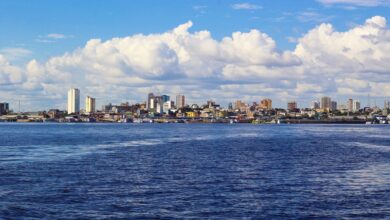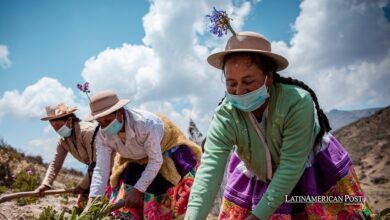Opinion: Is it really in our hands to stop climate change?
While the small changes that we make as individuals can contribute to the race against climate change, it is not in our hands to stop what is imminent .

In the midst of all that climate change disaster, which seems to be imminent and unstoppable, we believe we can make a change .. / Photo: Unsplash
LatinAmerican Post | Vanesa López Romero
Listen to this article
Leer en español: Opinión: ¿Realmente está en nuestras manos frenar el cambio climático?
"Climate change", "global warming", "greenhouse effect". How many times do we hear these words during the week? Seemingly more and more, every day the risk increases that the Paris Agreement will not be complied with, that the temperature will rise one degree centigrade more, that a species will become extinct, that more social leaders will be assassinated, that the industry of livestock continue to prolong the deforestation of the Amazon. And in the midst of all that disaster that seems to be imminent and unstoppable we believe that we can make a change.
Maybe recycle, maybe stop eating meat for one day a week, take a bath for less time, or why not? start consuming products that are friendly to the environment. Thus, we begin to have a more sustainable life, a life that makes us look good with a consumerist society and takes away from us a little the responsibility of being part of those who only think about capitalism and their own benefits. We believe that we are saving the planet. But are we really saving them? More importantly, do we really have the ability to save it?
It depends on us?
Sure, stopping eating meat, having a more sustainable lifestyle and even sharing it on social networks has a positive impact, but that impact is minimal in a chain that is much broader and whose largest link and incident is an entire system. The fight to stop climate change cannot be limited to sharing an image of the Amazon on fire on social networks, or not eating meat once a week, much less believing that we are contributing by supposedly having a sustainable life. The individual fight for climate change must move from private spaces to public spaces, truly public.
I would like to clarify that with this I do not mean to say that these small changes should not be made, but I do believe that they should be thought more, that they should be questioned and configured around a broader mentality that also occupies a more political and community character. Once that mentality is broadened, we can understand that behind the environmental problem there is an entire industrial, political, social and economic system, and that changing it depends, to a large extent, on demanding that the governments of the countries generate policies that defend and protect the environment. environment, policies that give more importance to the voice of social leaders who struggle and who have sadly been killed while protecting ecosystems and communities.
What to do after the pandemic?
According to the United Nations Environment Program (UNEP) Emissions Gap Report 2020, the world is still heading for a temperature rise of more than 3 ° C this century, despite a reduction in emissions due to the confinements due to the COVID-19 pandemic. How governments act from now on will be crucial in shaping the fate of the world for years to come.
Unfortunately, it is already expected that many countries will increase their emissions in order to balance the economic crisis that the pandemic brought with it. According to the same report, governments must create policies that aim to reduce emissions by 7.6% each year, current policies and actions are far from meeting that goal.
However, the UN urges that the objectives can still be met, while there is still time to change the direction we are heading towards. Broadly speaking, changing the paradigm may sound very ambitious, but it is something we must commit to, as individuals and as societies.




